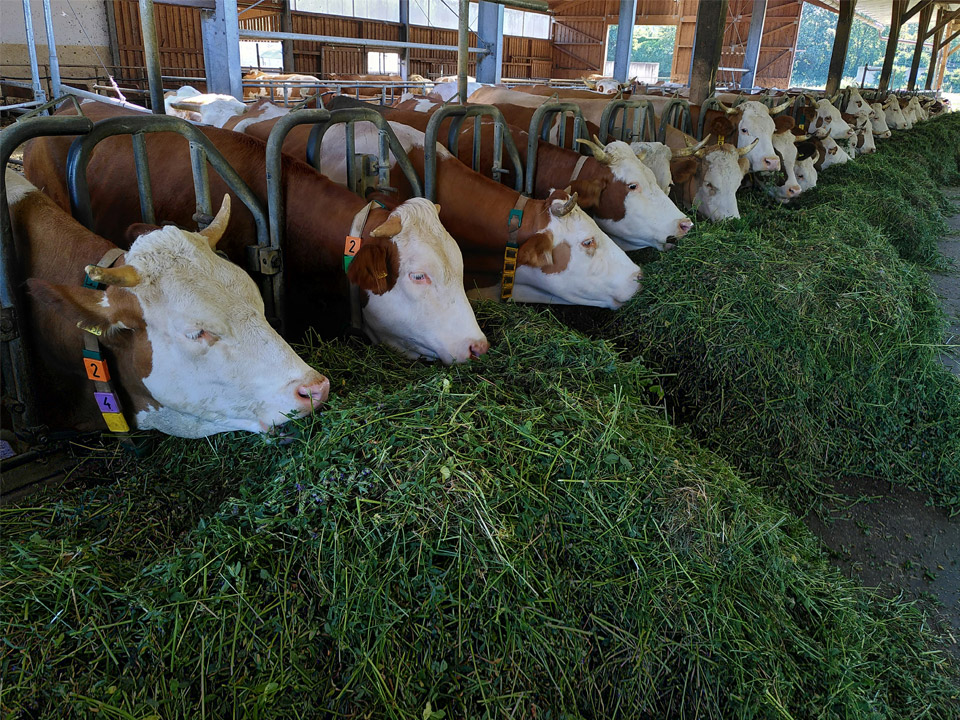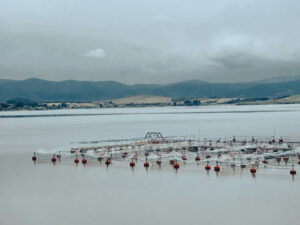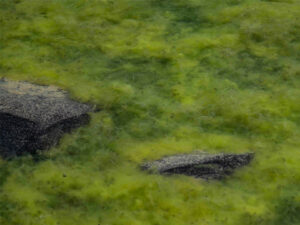Algae have taken the world by storm, not just in the realms of biofuel production and environmental sustainability, but also as a promising source of animal feed. But here’s the kicker: after algae are processed for biofuel – mainly through the extraction of lipids (the fats)- what remains is a treasure trove of nutrients that can revolutionize the animal feed industry. Let’s dive into why algae, specifically the leftover biomass, are becoming a go-to ingredient in animal feed and why this trend is here to stay.
The power of algae: More than just biofuel
Algae are tiny powerhouses that thrive in aquatic environments. They’re incredibly efficient at converting sunlight, carbon dioxide, and nutrients into biomass, which is why they’re so valuable in biofuel production. But once the oil has been extracted for biofuels, you’re left with a nutrient-dense byproduct known as defatted algae biomass. Instead of being discarded, this leftover material holds incredible potential for animal nutrition.
Why algae are great for animal feed
- Rich in protein: Algae are packed with proteins, often making up 40-70% of their dry weight. Protein is a crucial component of any animal’s diet, especially for growth and muscle development. This makes algae biomass a perfect supplement for livestock, poultry, and even aquaculture.
- Loaded with amino acids: Algae contain essential amino acids that animals cannot produce on their own. These amino acids are vital for building proteins, supporting immune function, and ensuring overall animal health.
- Abundant in vitamins and minerals: Algae are natural multivitamins. They are rich in vitamins like B12, A, and E, as well as minerals such as iron, calcium, magnesium, and potassium. These nutrients are crucial for maintaining healthy bones, promoting proper growth, and enhancing the immune system in animals.
- High in fiber: The leftover algae biomass is often rich in fiber, which aids in digestion and promotes gut health in animals. For ruminants like cattle and sheep, this fiber can be especially beneficial.
- Omega-3 fatty acids: Even after lipid extraction, some algae biomass retains a portion of beneficial omega-3 fatty acids, which are essential for animal health. These fatty acids improve the quality of meat, milk, and eggs, contributing to healthier products for human consumption as well.
- Antioxidants and bioactive compounds: Algae also contain various antioxidants and bioactive compounds that can reduce inflammation, boost immunity, and improve the overall well-being of animals. Some of these compounds can even enhance the flavor and color of animal products like meat and eggs, making them more appealing to consumers.
Sustainable and eco-friendly
Beyond the nutritional benefits, incorporating algae biomass into animal feed is a sustainable choice. Algae cultivation requires less land, water, and resources compared to traditional feed crops like soy or corn. Additionally, using leftover algae biomass reduces waste from biofuel production, creating a closed-loop system that benefits both the environment and the economy.
A growing trend
Farmers and feed manufacturers are increasingly recognizing the advantages of algae-based feed. As the global population continues to grow, the demand for sustainable, nutrient-rich animal feed is only going to increase. Algae offer a promising solution that aligns with the goals of reducing environmental impact while ensuring the health and productivity of livestock.
Conclusion
Algae, particularly the leftover biomass from biofuel production, are proving to be a game-changer in the animal feed industry. Rich in proteins, vitamins, minerals, and other essential nutrients, algae offer a sustainable and nutritious alternative to conventional feeds. As we continue to explore and expand the potential of algae in various industries, its role in animal nutrition is one that cannot be overlooked. By embracing algae as a feed source, we’re not only supporting healthier animals but also taking a step toward a more sustainable future.



